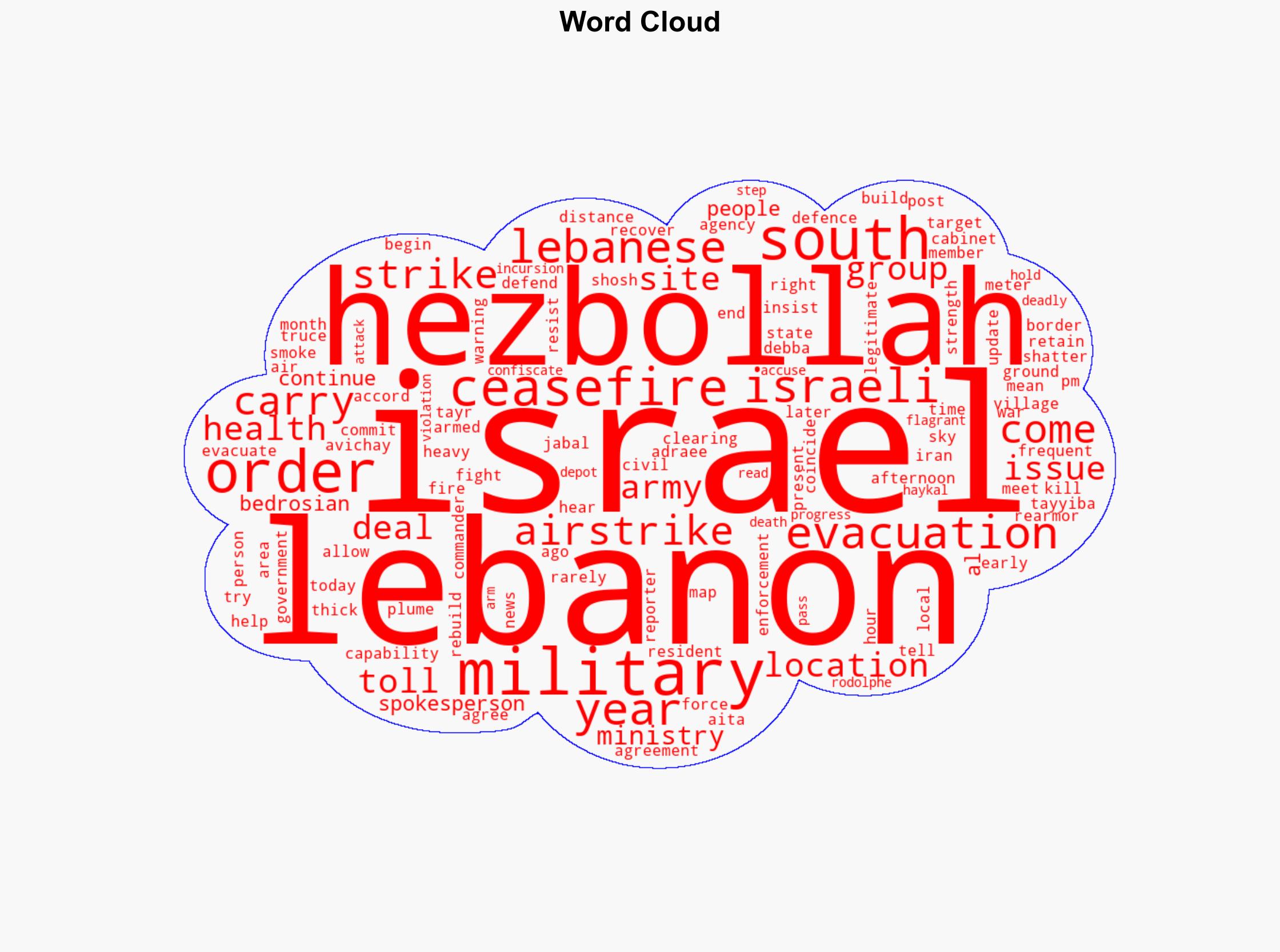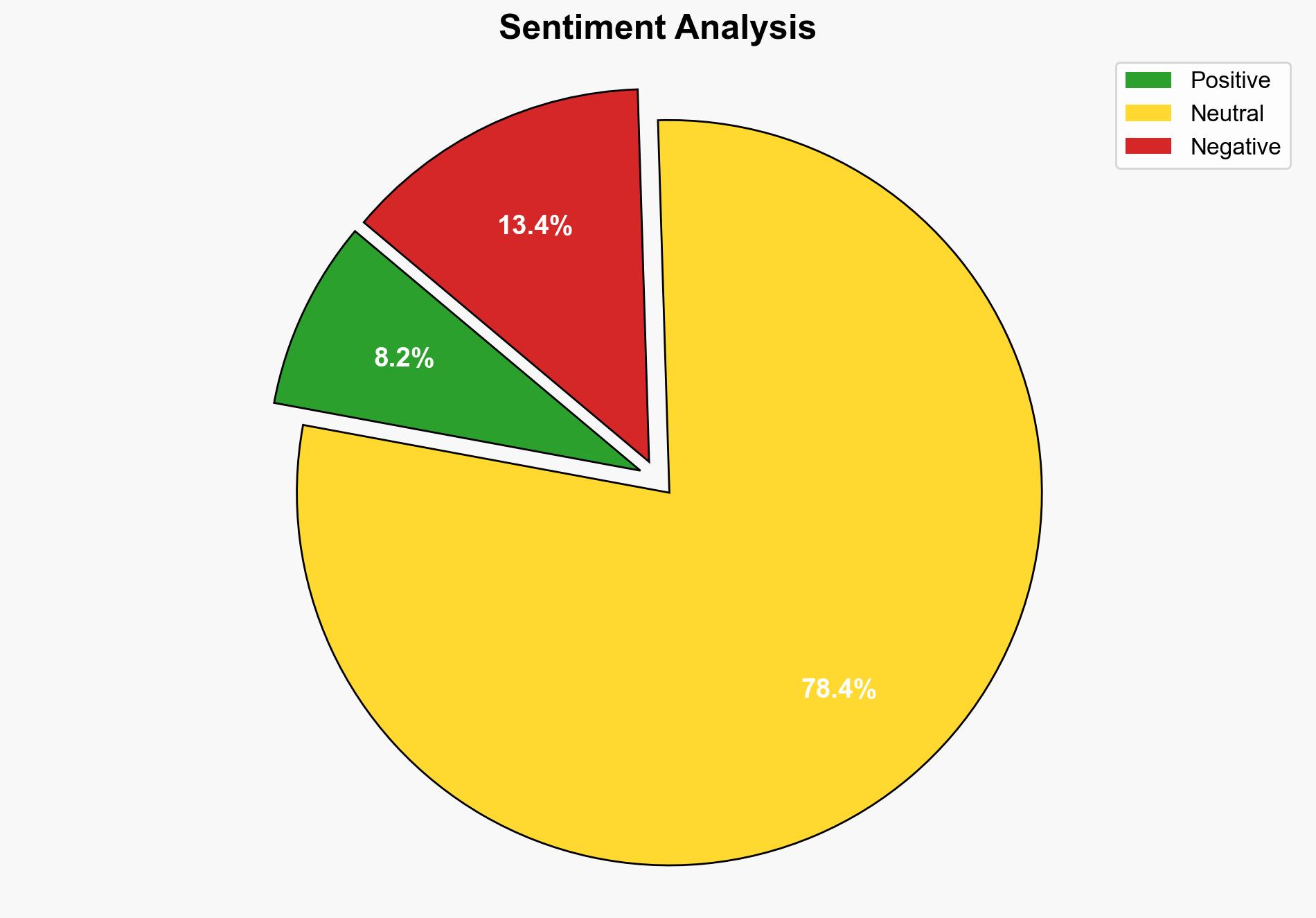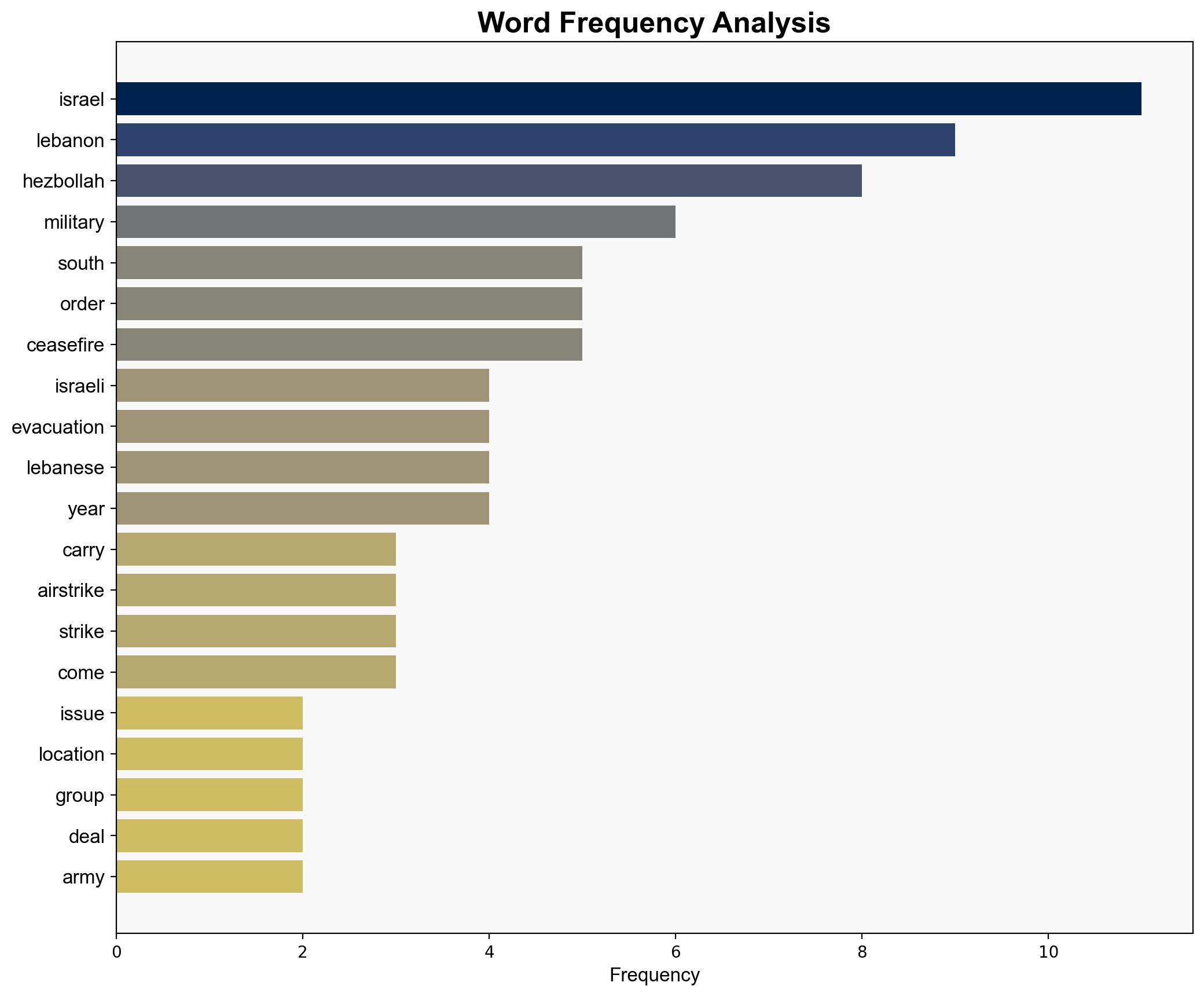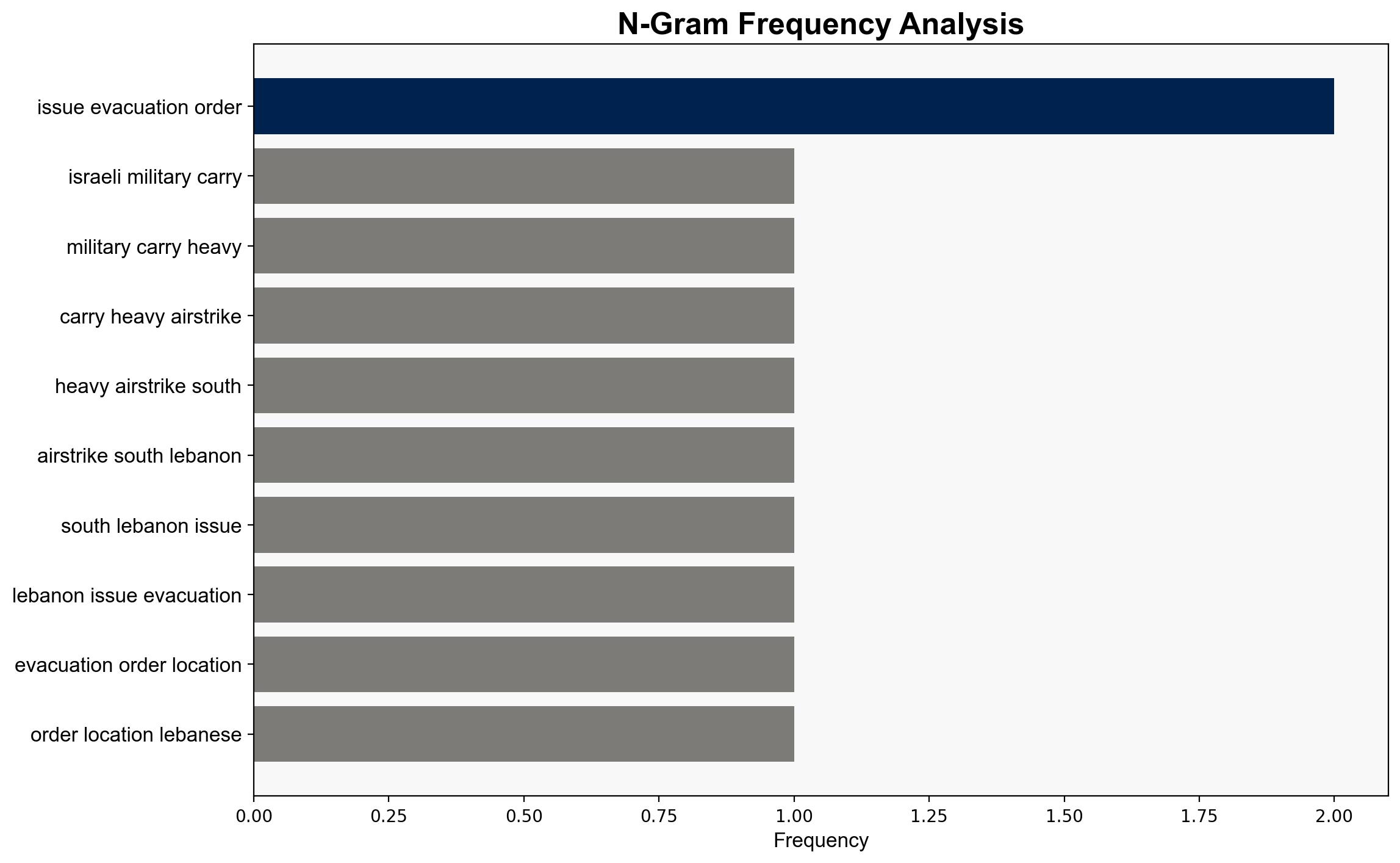Israel launches strikes on Hezbollah targets in Lebanon – RTE
Published on: 2025-11-06
Intelligence Report: Israel launches strikes on Hezbollah targets in Lebanon – RTE
1. BLUF (Bottom Line Up Front)
Israel’s recent airstrikes on Hezbollah targets in Lebanon indicate a potential escalation in regional tensions. The most supported hypothesis suggests that Israel is preemptively targeting Hezbollah to prevent military rearmament. Confidence level: Moderate. Recommended action: Increase diplomatic engagement to reinforce ceasefire agreements and monitor military activities in the region.
2. Competing Hypotheses
1. **Hypothesis A**: Israel’s airstrikes are a preemptive measure to prevent Hezbollah from rebuilding its military capabilities, thereby maintaining regional security and enforcing the ceasefire agreement.
2. **Hypothesis B**: The airstrikes are a strategic maneuver by Israel to provoke Hezbollah and justify further military action, potentially destabilizing the region to gain a geopolitical advantage.
Using ACH 2.0, Hypothesis A is better supported due to Israel’s historical pattern of targeting Hezbollah’s military infrastructure and the explicit mention of preventing rearmament in the source text. Hypothesis B lacks direct evidence but remains plausible given regional dynamics.
3. Key Assumptions and Red Flags
– **Assumptions**: Israel’s actions are solely defensive; Hezbollah’s military buildup poses an imminent threat.
– **Red Flags**: Lack of independent verification of Hezbollah’s military activities; potential bias in Israeli and Lebanese reports.
– **Blind Spots**: Limited insight into Hezbollah’s strategic intentions and internal decision-making processes.
4. Implications and Strategic Risks
– **Escalation Risks**: Increased military engagements could lead to broader conflict involving regional powers.
– **Geopolitical Impact**: Strained Lebanon-Israel relations may affect broader Middle Eastern alliances and U.S. interests.
– **Psychological Impact**: Heightened tensions could exacerbate civilian fear and displacement, affecting regional stability.
5. Recommendations and Outlook
- Engage in diplomatic dialogues with regional stakeholders to de-escalate tensions.
- Enhance intelligence-sharing mechanisms to verify military activities and intentions.
- Scenario Projections:
- Best: Successful diplomatic intervention leads to reinforced ceasefire.
- Worst: Full-scale conflict erupts, drawing in regional powers.
- Most Likely: Continued low-intensity skirmishes with periodic diplomatic efforts.
6. Key Individuals and Entities
– Avichay Adraee
– Shosh Bedrosian
– Rodolphe Haykal
7. Thematic Tags
national security threats, counter-terrorism, regional focus




